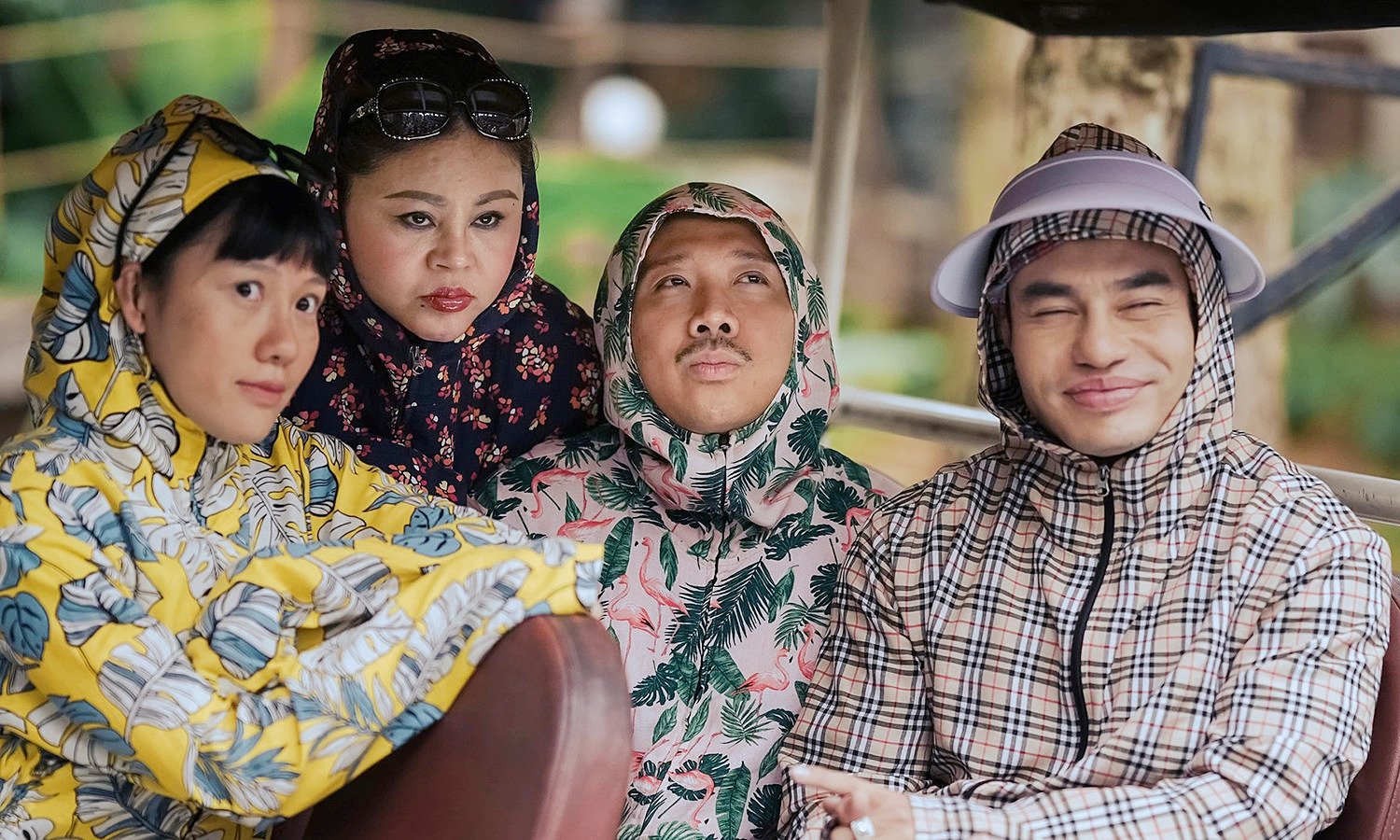At a film development seminar during the 2025 Da Nang Asian Film Festival, Charles Kim, a producer and member of the Korea International Streaming Film Festival (KISF), praised the rapid growth of Vietnamese cinema, particularly in terms of viewership in theaters and on digital platforms. However, he noted that the commercial film scene is dominated by profitable genres like family comedies and horror.
"These films attract domestic audiences, but they struggle to reach a global audience due to a lack of emotional diversity. That is the element that helps cinema connect with the public," he said.
 |
Expert Charles Kim speaks at the seminar on the afternoon of 1/7. Photo: Minh Nguyet |
Expert Charles Kim speaks at the seminar on the afternoon of 1/7. Photo: Minh Nguyet
In the 2000s, South Korea experienced domestic success with local comedies like My Sassy Girl and Shiri. However, these projects struggled to attract international audiences due to culturally specific content.
Hong Kong cinema faced a similar situation. In the 1980s and 1990s, Hong Kong emerged as a hub for Asian cinema with action stars like Jackie Chan, Jet Li, and Chow Yun-Fat, and numerous martial arts and crime films were widely exported. However, due to over-reliance on a successful formula, Hong Kong cinema gradually lost its creativity and failed to train the next generation, leading to a prolonged decline.
Over the past 10 years, the Vietnamese film market has grown significantly, with many films grossing over 100 billion VND, primarily in genres familiar to the public. "Vietnamese cinema is at a crucial turning point: follow the familiar path with profitable but unsustainable formulas, or restructure the film ecosystem by investing in new talent training, expanding genres, building deep content platforms, and promoting international production partnerships," Kim said.
 |
Tran Thanh's film Bo Tu Bao Thu was a hit but received criticism for its script, with many viewers considering it a step back compared to Mai. Photo: Film Crew |
Tran Thanh's film Bo Tu Bao Thu was a hit but received criticism for its script, with many viewers considering it a step back compared to Mai. Photo: Film Crew
Domestic experts believe that audience tastes contribute to the rise of horror, comedy, and family films. According to Nguyen Hoang Hai, Content Director of CJ CGV Vietnam, traditional elements attract many viewers, and this is a strength of Vietnamese films compared to foreign productions. Directors' focus on these genres stems not only from commercial factors but also reflects audience demand.
"However, we need to balance catering to domestic tastes with a broader market expansion strategy. With proper investment in content and format, exploring familiar themes can go hand-in-hand with creative projects," he said.
Director Dang Thai Huyen noted that war films are currently popular. This genre, once considered difficult to engage younger audiences, has gained traction through its storytelling and emotional portrayal of history. War films are no longer limited to propaganda and can reach wider audiences. Dao, Pho va Piano, a film about the love story of a self-defense soldier and a young lady, earned over 16 billion VND despite limited release. Bui Thac Chuyen's Dia Dao, which tells the story of soldiers fighting in Cu Chi, surpassed 170 billion VND and received positive reviews.
Young people's interest in this genre reflects a desire to approach history from a new perspective. They seek emotional experiences through film, visualizing wartime settings and atmospheres rather than just reviewing events or figures. When director Phi Tien Son and the Dao, Pho va Piano team interacted with the audience, he realized that viewers don't demand grand ideas but appreciate well-executed details of daily life and metaphorical imagery about the human condition during wartime.
Teaser "Mua Do", about the battle to defend Quang Tri Citadel in 1972, directed by Dang Thai Huyen. The film is scheduled to be released on National Day, 2/9. Video: Film Crew
"Filmmakers need to explore new approaches to content and format to attract larger audiences. This will motivate the younger generation to tell historical stories using modern cinematic language," the director said.
In addition, Charles Kim believes that action films should be considered a key area for development in Vietnamese cinema. This genre has great market potential and export possibilities, but Vietnam lacks the technical production systems and specialized creative teams, such as action designers and martial arts directors.
"To achieve this, we need a comprehensive upgrade of the film education system. This model not only connects training institutions with real-world production networks but also allows students to participate in international projects, access new technologies, and develop filmmaking mindsets. Vietnam can certainly achieve this if it acts decisively now," Kim said.
This year's Da Nang Asian Film Festival took place over seven days, from 29/6 to 5/7. The competition program includes two main categories: Asian Film and Vietnamese Film. Among the 12 Vietnamese films in competition were high-grossing works like Tham Tu Kien and Nha Gia Tien. The jury included figures like artist Minh Chau, director Bui Thac Chuyen, and international experts and critics.
The event also featured numerous seminars, notably the seminar "The Mark of Vietnamese War Films Since Reunification," attended by many experts, to evaluate the role of war films in the development of cinema and promoting Vietnam's image globally. Additionally, the organizers honored Vietnamese war films, selecting 22 films produced after 1975, reflecting the spirit of the times and the development of Vietnamese cinema.
Que Chi












